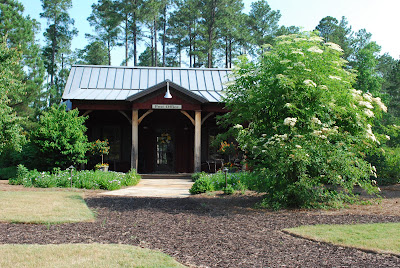 We have a new euphemism in the Canuck language. HAM no longer means what it used to. In Vancouver, anyway, it refers to the tide of money coming out of Mainland China and into our RE market. Why is it hot? Well for several reasons. Sometimes it seems like the owners of this money cannot wait to get rid of it. It is almost like a 'hot' potato and has to be thrown at the asset as soon as possible. No time to bargain for what you want, just buy it at full price or even higher to make sure you get it.
We have a new euphemism in the Canuck language. HAM no longer means what it used to. In Vancouver, anyway, it refers to the tide of money coming out of Mainland China and into our RE market. Why is it hot? Well for several reasons. Sometimes it seems like the owners of this money cannot wait to get rid of it. It is almost like a 'hot' potato and has to be thrown at the asset as soon as possible. No time to bargain for what you want, just buy it at full price or even higher to make sure you get it.
'Hot' also because in some cases it is not clear how this money was acquired and no-one seems very concerned to find out.
Of course like any phenomenon, there are good effects and bad effects. The floods in Manitoba are a disaster now, but will probably leave rich, silty soil for good crops in future years. Ask the Egyptians who lived around the Nile, they prayed for floods to enrich their soil with natural fertilizer.
OK back to HAM. I am going to review briefly some effects, feel free to throw your own ideas in:
The Bad...
First I am going to describe an anecdote that was told to me. Since it is second hand, I cannot vouch for it's veracity, however I have no reason to doubt it and the point is illustrative in any case of others.
A professional couple were recruited by a high tech company. They had specialized skills and were brought over form the UK. He has an Indian background, she has an English. They have two kids and rented on a two year agreement while they decided what to do. After one year, the landlord said he needed to do some repairs and they would be inconvenienced. He offered up to two months free rent while they looked for a replacement. They didn't fight it, but looked around and decided to go with a one year lease this time and hoped to buy in the interim.
After a few weeks, they saw their old rental house spruced up, listed and sold. The previous neighbours said it was bought by an absentee Mainland China buyer.
Their current lease is due to expire soon (they didn't find anything reasonable to buy) and the landlords, who are a retired, local couple listed the house and almost instantly sold it. The new owners are HAM and say they do not want to rent it out, but leave it empty until one child is old enough to come here with a relative and attend school.
The couple are fed up with their housing experience, and are not wiling to mortgage their future, especially when they work in a field where mobility is essential and have asked to be transferred to one of the company's office in Western USA and work from there. It looks like the company will agree.
Net result: We lose a family who added vibrancy to our city, as well as two high paying taxable jobs. We gain two absentee owners who would rather leave the home empty (taking housing out of the stock and putting pressure on those remaining) and tax revenues have dropped.
At present they are absent and so are not using services (maybe a net gain) but when they are occupied- it is very unlikely that the owners will report all their income to be taxed in Canada while still using our costly services.
This is the downside of allowing unfettered access to our assets to anyone with money. However we are now in such a globalized world that it is very difficult to restrict anyone's access, for fear of retaliation in another area (eg lumbar)
The Good....
Lets look at the two examples above. Both homes sold for near $2M. That means the BUYER has thrown $40K per transaction into the Provincial Government's coffers. $80K just for these two. No small peanuts. The steroid-induced prices also mean that the Realtors shared $60K in commissions per transaction. $120 K for the two. Think more taxes, BMW lease payments, secretarial staff, advertising etc. There will no doubt be redecorating and furnishings which could probably add as much again.
So these two transactions have brought $4 Million into Canada and generated probably $300K in economic activity in a very short time. Almost nothing else has this degree of impact. Now you can see why Governments are very reluctant to restrict foreign ownership. Usually these transactions are also cash.
Also these properties are bought from baby-boomers. HOPEFULLY that means they will be able to pay for their own medical care and drug care and not be such a drain on the tax-purse and eventually this money will make it's way into the wallets and purses of their kids, either through debt forgiveness or down-payments on property. The windfall will get sread around in families.
The US would love to attract these investors to bail-out it's collapsing housing market and generate economic activity (for the first time in my living memory Canada has a lower unemployment rate than the US).
What we have too much of, they would like a little of!
The Ugly...
I have seen comments that we have become a resort City. People fly in, have fun, check out their properties, chat with their bankers and then fly off to go make serious money (sometimes illegally) elsewhere. meanwhile the rest of us beaver away here making sure the streets are safe and the services are run and paid for waiting for their return..
What does that sound like?
Mexico. The many resorts that we flock to, where we gorge ourselves on cheap booze and food and then leave, not caring much about the locals who are paid a pittance to wait on us and clean up after us.
Like I said in a previous post, friends, who have blue-collar jobs here, bought prime Ocean-front beachfront in Central America that the local doctors and lawyers could not afford. How could they afford that? Because our Canadian dollar is so high- due partly to the inflows of money for purchases like RE by the Chinese!
So it is all relative. We feel plundered while others feel plundered by us.
This post is just meant to start the conversation on this thorny subject and to show how complicated it is.

















































